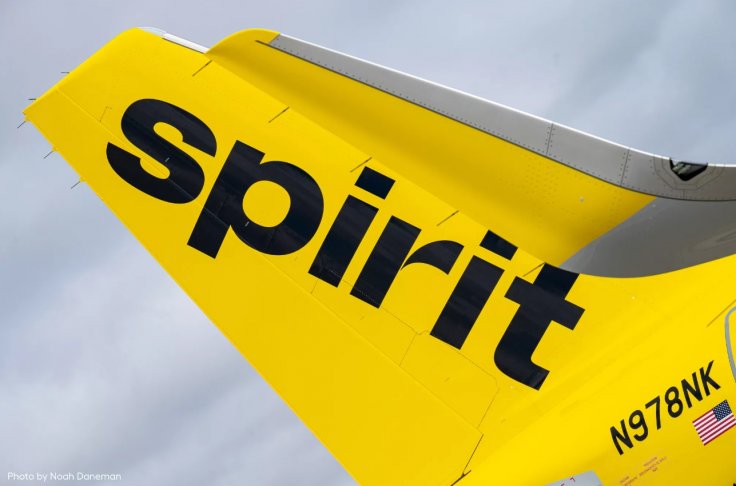Spirit Airlines announced on Monday that it has filed for bankruptcy protection as it works to restructure its operations amid mounting problems. The airline has been grappling with the financial fallout from the pandemic-driven decline in air travel and the collapse of a proposed sale to JetBlue.
As the largest budget carrier in the United States, Spirit has incurred losses of over $2.5 billion since 2020 and is confronting over $1 billion in debt payments due within the next year. Spirit’s troubles worsened in January following the failure of its planned $3.8 billion merger with JetBlue Airways. The airline has now filed for Chapter 11 bankruptcy protection in New York.
Losing the Spirit
X
However, the airline has assured that it will continue operations while working to reorganize its debt. Shares of Spirit Airlines, headquartered in Miramar, Florida, plummeted by 25 percent on Friday following a report from The Wall Street Journal that the airline was in talks with its bondholders about a potential bankruptcy filing.
This marks the latest setback in a series of challenges that have caused Spirit’s stock to lose 97 percent of its value since late 2018, a time when the company was still profitable.
In August, CEO Ted Christie confirmed that Spirit was in discussions with advisers representing its bondholders regarding its impending debt deadlines. He insisted that these talks were a top priority for the airline and said that the company was working to secure the best possible agreement as swiftly as it could.
“The chatter in the market about Spirit is notable, but we are not distracted,” he told investors during an earnings call.

X
“We are focused on refinancing our debt, improving our overall liquidity position, deploying our new reimagined product into the market, and growing our loyalty programs.”
Passengers are still choosing to fly with Spirit Airlines, but they’re spending less on tickets.
In the first half of this year, Spirit Airlines saw a 2 percent increase in passenger traffic compared to the same period last year. However, passengers are paying 10 percent less per mile, and revenue per mile from ticket sales has dropped nearly 20%, further deepening the airline’s financial losses.
This trend isn’t new. Spirit has struggled to regain profitability even after the easing of the coronavirus pandemic and the resurgence of travel. Several factors are driving this decline.
The airline’s operating costs, particularly labor expenses, have increased. Major U.S. airlines have also attracted some of Spirit’s cost-conscious customers by introducing their own no-frills ticket options. Additionally, fares for domestic leisure travel—Spirit’s primary market—have fallen due to an oversupply of flights.
Bigger Challenge
The high-end air travel market has seen significant growth, while Spirit’s traditional budget-friendly segment has remained stagnant.

X
In response, Spirit made a notable shift this summer by introducing bundled fares. These packages include perks like larger seats, priority boarding, complimentary baggage, internet access, and refreshments—a major departure from the airline’s previous approach of offering ultra-low base fares and charging extra for add-ons like carry-on luggage or drinks.
In another unusual move, Spirit plans to cut its October-to-December flight schedule by nearly 20 percent compared to the same period last year. Analysts suggest this strategy could help stabilize ticket prices.
However, the reduction in the number of flights is expected to benefit competing airlines more than it will bolster Spirit’s own performance.
Analysts from Deutsche Bank and Raymond James predict that Frontier, JetBlue, and Southwest Airlines stand to gain the most from Spirit’s planned schedule reductions, as they operate on many of the same routes.
Spirit is also facing challenges due to mandatory repairs on Pratt & Whitney engines, which have forced the airline to ground numerous Airbus planes. These engine issues have been cited as the reason Spirit furloughed some of its pilots.

X
Despite these hurdles, Spirit’s relatively young fleet has made it an appealing target for potential acquisitions.
In 2022, Frontier Airlines tried to merge with Spirit but was outbid by JetBlue.
However, the $3.8 billion deal with JetBlue faced legal obstacles when the Justice Department sued, arguing it would increase prices for Spirit’s low-cost customers. A federal judge sided with the Justice Department in January, and the merger was officially abandoned two months later.

